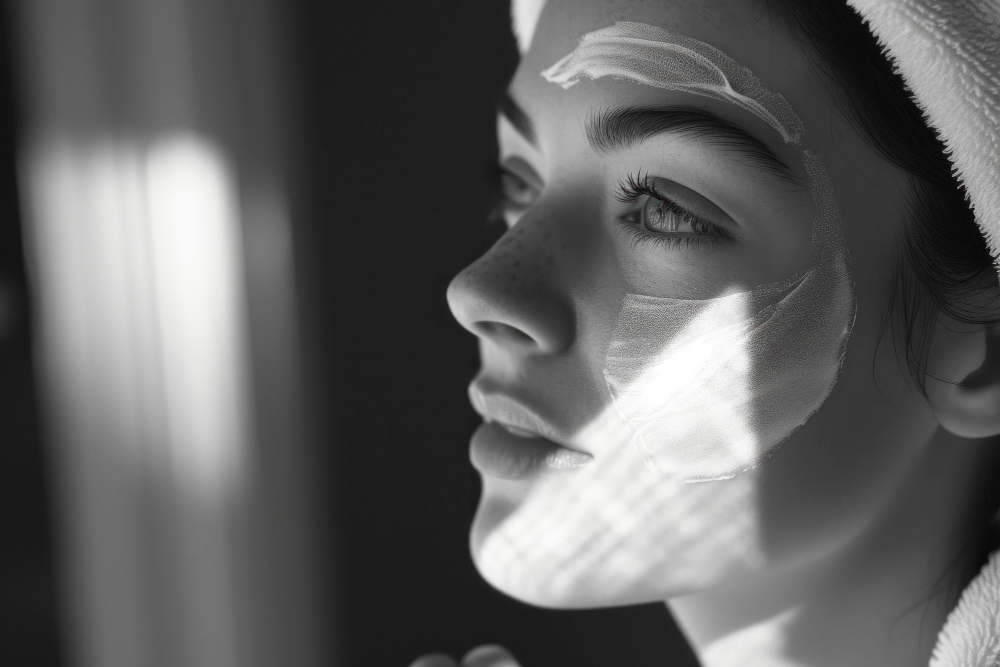You’re doing everything “right”—eating your greens, drinking water, and religiously applying sunscreen. So why does your skin still seem to be aging faster than you’d like?
Here’s the thing that no one talks about enough: sometimes the biggest threats to our skin aren’t the obvious culprits we’ve been warned about. Instead, they’re hiding in our daily routines, masquerading as harmless habits that we barely think twice about.
If you’re like most women I know, you’re probably already aware of the major skin-aging villains—UV rays, smoking, and that extra glass of wine. But what about the subtle, everyday behaviors that might be silently accelerating your skin’s aging process? The ones that slip under our radar because they seem so innocent, so normal, so… unavoidable?
After diving deep into the latest research on lifestyle factors that influence skin health, I’ve identified five surprisingly common habits that might be adding years to your face without you even realizing it. The good news? Once you know what they are, you can start making small adjustments that could make a real difference in how your skin ages.
1. Your Sleep Position Is Writing Lines on Your Face
I used to be a dedicated side sleeper—always curled up on my right side, face pressed deep into my pillow. It wasn’t until I started noticing a more pronounced line on the right side of my face that I connected the dots. Turns out, sleeping on your back with your head slightly elevated may help prevent fluid buildup around the eyes, reduce puffiness, and lessen the appearance of dark circles.
But it’s not just about puffiness. When you sleep on your side or stomach night after night, you’re essentially creating repeated compression and folding of your facial skin against your pillow. Over time, these “sleep lines” can become permanent wrinkles, especially as our skin loses elasticity with age.
The science backs this up: chronic poor sleep quality is associated with increased signs of intrinsic ageing, diminished skin barrier function and lower satisfaction with appearance. It’s not just about how much sleep you get—it’s about how you sleep.
Now, I’m not suggesting you completely overhaul your sleep habits overnight (pun intended). I know how hard it can be to change a lifelong sleeping position. But consider this: investing in a silk or satin pillowcase can reduce friction against your skin, and if you can gradually train yourself to sleep on your back more often, your face will thank you in the long run.
2. The Screen Glow That’s Stealing Your Youth
This one hit me hard because, let’s be honest, our phones have become extensions of ourselves. Whether we’re scrolling through social media before bed, taking endless selfies, or video chatting with friends, we’re bathing our faces in artificial light for hours each day.
Recent research has revealed something concerning: frequent exposure to VL and EMFs produced by smartphones can lead to skin damage and accelerated ageing (promoting wrinkles). We’ve been so focused on protecting ourselves from UV rays that we’ve ignored the potential impact of high-energy visible (HEV) light from our devices.
Think about it—how many hours a day is your face illuminated by the blue light from your phone, laptop, or tablet? If you’re like most people, it’s probably more than you spend in direct sunlight. Research is now pointing a finger at the infrared and high energy visible (HEV) light from our phones.
The solution isn’t to throw your phone in a drawer (though a digital detox never hurt anyone). Instead, consider using blue light filters on your devices, especially in the evening. Hold your phone a bit further from your face when possible, and maybe invest in some blue light blocking glasses if you spend long hours in front of screens for work.
3. The Stress Cycle That’s Etching Itself into Your Skin
We all know stress is bad for us, but we often think of it in terms of headaches, insomnia, or that knot in our stomach. What we don’t always connect is how chronic stress literally shows up on our faces.
Psychological stress activates the SAM, RAS, HPA and cholinergic systems, which contribute to immune dysfunction, ROS, and DNA damage, with skin aging as a possible final result. In simpler terms? When you’re constantly stressed, your body goes into overdrive, creating free radicals and inflammation that break down collagen and elastin—the very proteins that keep your skin firm and youthful.
I’ve noticed this in my own life. During particularly stressful periods, my skin looks dull, tired, and somehow… older. It’s not just about stress causing breakouts (though that happens too). It’s about stress literally accelerating the aging process at a cellular level.
The tricky part about stress is that it often feels unavoidable. Work deadlines, family responsibilities, global events—they’re all beyond our control. But what we can control is how we respond to stress. Whether it’s meditation, exercise, journaling, or simply saying no to unnecessary commitments, finding healthy ways to manage stress isn’t just good for your mental health—it’s essential for your skin’s longevity.
4. The Dehydration Trap That’s More Subtle Than You Think
“Drink more water” has become such common advice that it almost feels cliché. But here’s what most people don’t realize: you can be drinking plenty of water and still be dehydrated at a cellular level, especially when it comes to your skin.
The issue isn’t just about water intake—it’s about water retention and the factors that work against your skin’s ability to stay hydrated. Things like air conditioning, heating, certain medications, caffeine, alcohol, and even some skincare ingredients can disrupt your skin’s moisture barrier.
“There are many measures that you can take to prevent any signs of premature aging,” Reynolds said. “This includes basic things such as getting enough sleep, staying hydrated and eating well.” But staying hydrated goes beyond just drinking eight glasses of water a day.
Pay attention to your environment. If you work in an air-conditioned office or live in a dry climate, you might need to be more intentional about maintaining your skin’s hydration. Consider using a humidifier, especially in your bedroom. Be mindful of over-cleansing or using products with drying ingredients. And yes, drink water—but also eat water-rich foods and use hydrating skincare products that help your skin retain moisture.
5. The Perfectionist’s Skincare Trap
This might be the most counterintuitive one on the list, but hear me out. In our quest for perfect skin, many of us have fallen into the trap of over-treating, over-cleansing, and over-analyzing every little change in our complexion.
I’ve been there—standing in front of the mirror with a magnifying glass, picking apart every pore, every fine line, every slight discoloration. The irony? This kind of obsessive attention often leads to over-treatment, which can actually accelerate aging.
Over-exfoliating, using too many active ingredients at once, constantly switching products, picking at your skin—these behaviors can compromise your skin barrier, cause inflammation, and ultimately make your skin look older, not younger. The pursuit of perfection becomes its own form of stress, both psychologically and physically for your skin.
The healthiest approach I’ve found is to develop a consistent, gentle routine and stick with it. Your skin needs time to adjust and respond to products. Constantly changing your routine or trying to “fix” every perceived flaw immediately often does more harm than good.
It’s About Lifestyle, Not Just Products
What strikes me most about these five habits is how interconnected they are. Poor sleep affects stress levels, which impacts how we use our devices, which influences our skincare obsessions, which can affect our overall well-being. It’s all connected.
Lifestyle health has been recognized as an evidence-based innovation that defines how everyday behaviors and routines influence the avoidance and therapy of illness and this extends to skin health as well.
The beauty of recognizing these subtle aging accelerators is that addressing them doesn’t require expensive procedures or complicated routines. It’s about small, sustainable changes to daily habits that compound over time.Small Changes, Big Impact
Start with one habit that resonates most with you. Maybe it’s investing in a silk pillowcase and trying to sleep on your back more often. Perhaps it’s setting boundaries around screen time or finding a stress management technique that actually works for your lifestyle.
The goal isn’t perfection—it’s awareness. Once you start noticing these patterns in your own life, you can begin making the small adjustments that, over time, can make a significant difference in how your skin ages.
Remember, aging is a natural process, and there’s beauty in every stage of life. But if you’re going to age, why not do it as gracefully and healthily as possible? Your future self will thank you for the small choices you make today.

Important Disclaimer: This article is for informational and educational purposes only and should not be considered professional advice. The content provided is based on general research and lifestyle observations and is not intended to diagnose, prevent, or address any specific health conditions. Individual results may vary, and what works for one person may not work for another.
Before making significant changes to your skincare routine, sleep habits, or lifestyle, especially if you have existing skin conditions or health concerns, please consult with qualified professionals such as dermatologists or healthcare providers. The author and publisher of this content are not responsible for any adverse effects or consequences resulting from the use of the information provided.
Sources: Information in this article draws from research published in peer-reviewed journals including studies from the National Center for Biotechnology Information (NCBI) and health organizations such as the Mayo Clinic, American Academy of Dermatology, and Sleep Foundation, as well as recent lifestyle and wellness research from 2024-2025.



